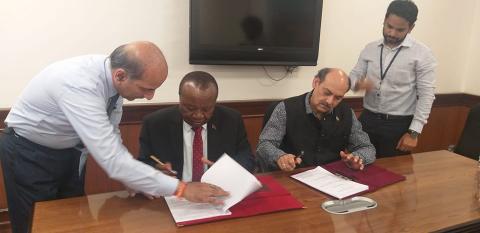A quarterly Network performance assessment report released by Malawi Communication Regulatory Authority (MACRA) a few days ago shows that Airtel (http://www.airtel.com) is, by far, the number one quality network in Malawi.
The MACRA report looks at the performance of the two mobile phone service providers in the months of October, November and December in 2011 and analyses the Key Performance Indicators which have been achieved by the Global System for Mobile Communications (GMS) service in the areas of Radio Network, Call Set up Success Rate, SDCCH congestion, Traffic Channel congestion, Call Drop Rate, Trunk Congestion, and Mobile Switch Centre Availability and Intelligence Network Platform availability.
The report which was published in the daily press shows that Airtel Malawi is leading in service performance as compared to other networks. According to the report, Airtel managed to beat MACRA’s call set up target of 98% by posting 98.9% in October, 99% in November and 99.2% in December, 2011, whilst all other telecom players were below the target set by Macra. Airtel Malawi also consistently out-performed its competitors as well as MACRA’s targets in the following areas:-call drops, sms success rate, congestion, internet success rate, call handover success rate and network availability.
Commenting on the report, Airtel Malawi Managing Director Saulos Chilima described the report as a vote of confidence and a result of the company’s investments aimed at continuously improving its quality of service.
“We always strive to maintain high standards so that we continuously provide an unmatched customer experience.” Chilima emphasized. “The report covers the period before we launched our 3.75G network and our customers should expect improved data services as we now have the fastest internet speeds in Malawi of up to 21 Mbps. Its super fast! ,” explains Chilima.
With this in mind, Airtel has remained committed to deepening its network coverage, bringing communication opportunities to the rural populations that, until now, have been left out of the telecommunications revolution in the country.





No comments! Be the first commenter?